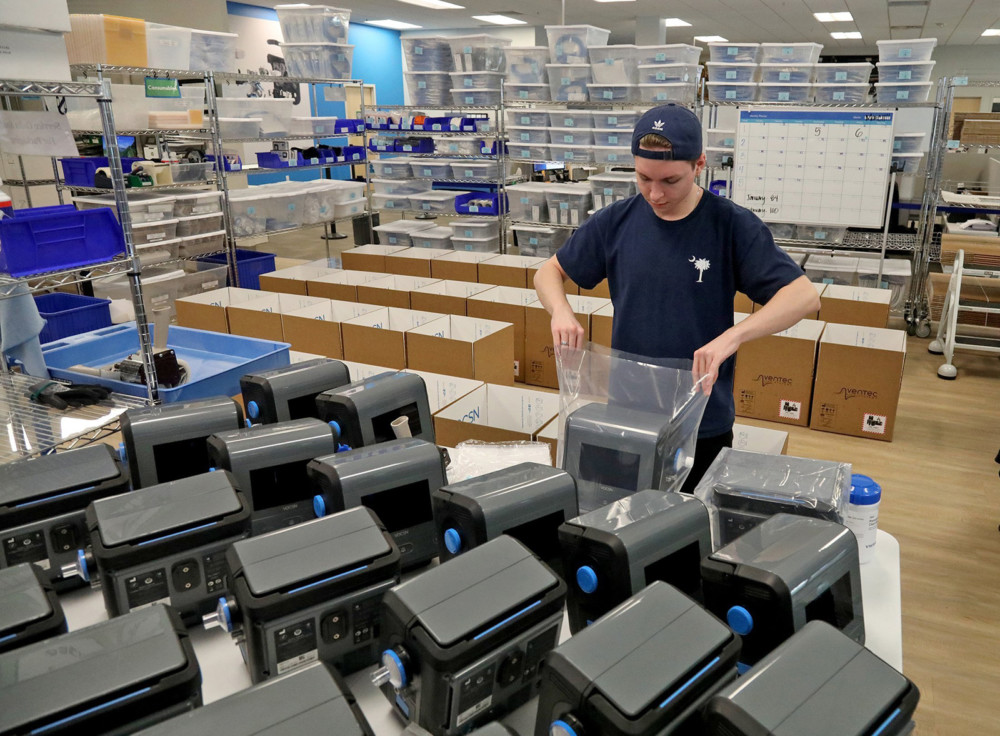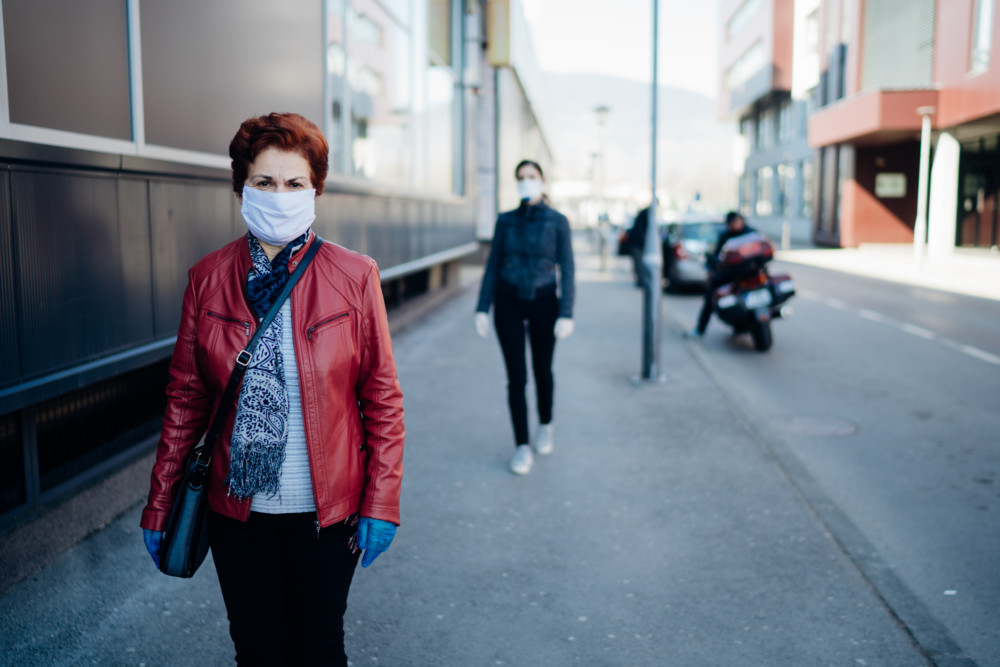By Geoff Baker
The Seattle Times
WWR Article Summary (tl;dr) One ventilator manufacturer points out that the machines are difficult to rapidly ramp up production on as they consist of hundreds of smaller components acquired though a vast international supply chain.
Seattle
Chris Kiple said he feels “the weight of the world on our shoulders” as his Bothell, Wash.-based ventilator-manufacturing company navigates furious worldwide demand to treat those sickened by the novel coronavirus.
But the CEO of Ventec Life Systems, which makes one of the world’s more deployable ventilators, said increasing production takes time. Hence, the phones he works daily from 5 a.m. through midnight soliciting help at building more of the intricate machines that cost as much as cars.
“It’s a complex device that delivers air in a very precise way to sick patients,” Kiple said Wednesday, adding that the machines consist of hundreds of smaller components acquired though a vast international supply chain. “It’s not easy to rapidly ramp up production of ventilators around the world.”
Hospitals and governments are bracing for an onslaught of domestic coronavirus cases amid an anticipated shortage of ventilators and space needed to treat those most vulnerable.
The Society of Critical Care Medicine estimates up to 960,000 coronavirus patients in the United States may need ventilators for life support, while hospitals have only around 160,000.
President Donald Trump had previously urged state governors to find their own ways of procuring ventilators, telling them: “Try getting it yourselves.”
But there’s a worldwide shortage.
Lower-cost home ventilators can’t generate the precise air delivery needed to treat potentially fatal coronavirus symptoms while hospitals are reluctant to stockpile higher-cost devices in numbers beyond what’s ordinarily needed.
About half of the top ICU models used domestically are imported from foreign manufacturers, and some countries, including Germany, have decreed that life-saving equipment be prioritized for their citizens.
There are fewer than a dozen domestic manufacturers that are largely backlogged with international orders; the United States has been slower than other countries at implementing policies for speeding up ventilator production.
Trump on Wednesday invoked the wartime Defense Production Act of 1950 to expand production of frontline medical supplies like ventilators and N95 protective hospital masks. Defense Secretary Mark Esper said his department also plans to distribute “up to 2,000 operational deployable ventilators for use as needed.”
Ventec couldn’t comment on the immediate impact of the newly-invoked production law, saying only that it’s filling orders for domestic and international customers as quickly as possible.
Jim Jeffries, spokesman for the Advance Medical Technology Association, representing more than 400 medical device manufacturers nationwide, said member companies are adding shifts, increasing training and repurposing production lines to get more critically-needed equipment built.
Other industries are pitching in to help; White House economic adviser Larry Kudlow said Wednesday that General Motors has offered some of its closed automaking factories to assist in making ventilators.
“All of our member companies making ventilators are operating at 100% capacity,” Jeffries said. “And we can expect a production increase of 15 to 20% in the near future.”
Ventec’s VOCSN, approved by the FDA two years ago, is the first and only multi-function ventilator, priced midway between the $5,000 for a typical home-care device and $50,000 for top-end intensive care unit (ICU) hospital models. At 18 pounds with a nine-hour battery, it combines five separate pieces of equipment – a ventilator, oxygen source, cough assist pump, suction unit and medication-delivery nebulizer, into one, making it practical for rapid deployment to remote locales or triage centers.
VOCSN also reduces the need for medical personnel to manage patients in more confined emergency spaces. A typical ICU device requires a critical care doctor, respiratory therapist and a nurse to monitor multiple pieces of equipment.
Dr. Marcus Schabacker, CEO of the nonprofit ECRI Institute that evaluates medical technology, said Ventec’s VOCSN could play a key role in emergency stabilization of some patients to spare higher-end ICU ventilators for the most life-threatening situations. The problem, he said, is that some ventilator components are part of a limited global supply chain and not easily swapped for “like-to-like” domestic replacements.
“The FDA will still want to ensure that in those medical-grade products, you still have valves and some components that are of quality necessary for a medical device,” Schabacker said. “I don’t think they’re just going to roll over and say ‘Oh sure, go ahead and use that product.”‘
That’s among the biggest challenges faced by Ventec, which already requires weeks of lead time between taking orders, acquiring parts and assembling and distributing the finished product.
So, Kiple now spends his days on the phone, listening to offers of help and figuring out how best to leverage them into manufacturing more product.
He’s in regular contact with Gov. Jay Inslee’s office and officials at the federal, state and local levels. Fortune 100 companies and others local and nationwide have also offered support, including help with logistics, engineering, recruiting, additional space and supply chain expansion.
Even local residents have emailed, volunteering to “carry boxes” and help however needed.
The company shipped 250 units last month, but production is ramping up exponentially and could hit 1,000 per month within 90 days and 2,000 in 120 days.
Ventec, which has made ventilators since 2012, plans an additional 100 hires in coming months to bolster its staff of 130. The company has imposed mandatory temperature checks and hand sanitation for visitors, added all-day janitorial services to disinfect surfaces used by employees and offered extended sick leave for staffers feeling unwell.
“I can’t tell you how proud I am of our team and the community for rising to the occasion,” Kiple said. “We really feel like we have a responsibility and an obligation to the world to save lives.”
___
Distributed By Tribune News Service















































































































































































































































































































































































